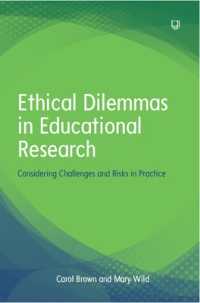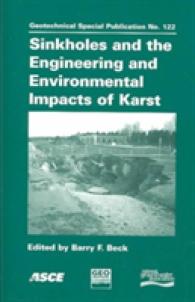- ホーム
- > 洋書
- > 英文書
- > Literary Criticism
Full Description
Homer presents a world-view in which death represents the end of consciousness and total annihilation of personhood. Yet in Odyssey, Book Four, he contradicts this by saying that one man at least will not die, but will be transported to Elysium, where he will have a blessed existence forever. In Mummy Wheat R. Drew Griffith argues that this shocking violation of Homer's normal world-view comes from Egypt, where more than anywhere else in the ancient world people firmly believed in life after death. This Egyptian view entered Homer deeply enough that traces of it can be found in many facets of his poetic language. Finally, Griffith argues, the Elysium idea did not die with Homer, but became enshrined in one of the most influential and long-lived religious traditions of Greece: the mysteries of Demeter at Eleusis outside of Athens.
Contents
Chapter 1 Brought Forth from the Land of Egypt
Chapter 2 Rowing to Elysium: Menelaus' Afterlife and Egyptian Religion
Chapter 3 The Voice of the Dead In the Odyssey and Egyptian Funerary Texts
Chapter 4 The Origin of Memnon
Chapter 5 Local Colour: The Egyptian Basis for some Homeric Descriptions
Chapter 6 Mechanism of Contact
Chapter 7 The Egyptian Background to the Eleusinian Mysteries
Chapter 8 Near Death Experience and the Eleusinian Mysteries: Resuscitation as Psychotherapy
Chapter 9 Afterward








